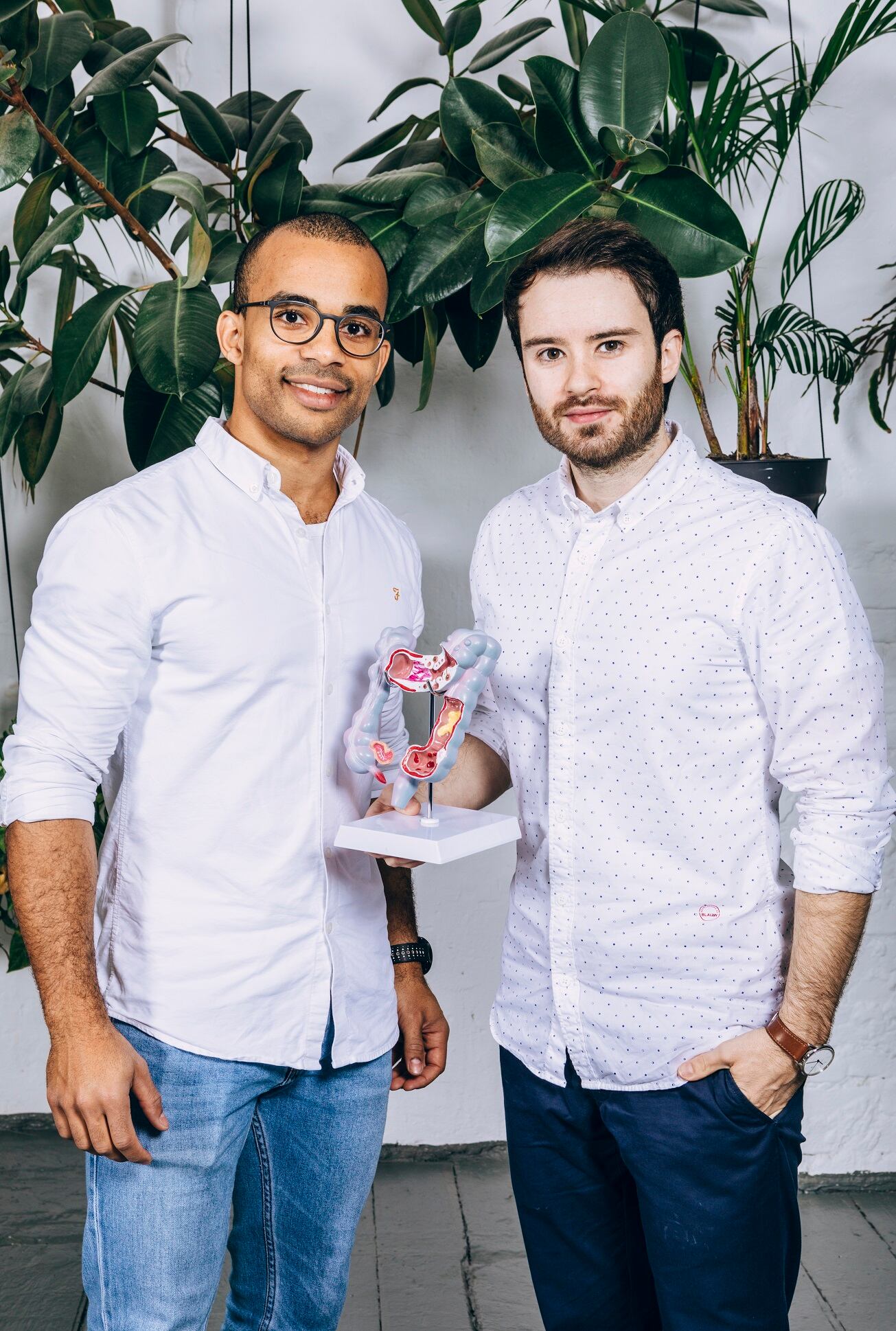Dr Andre Sommer, co-founder of four-year-young Berlin-based Cara Care, began his career as a medical doctor and it was while working in hospitals that he noticed the communication gaps in the healthcare system.
“Nothing was connected. We were driving CD-ROMs from one hospital to another when the information could have easily been shared digitally - it was a nightmare.
“I thought, why don’t we use the power of technology to give information to the patients. I had this idea that we could use technology to help improve communication with primary doctors but I didn’t know where to start with it.”
Dr Sommer’s idea began to develop focus when his friend suffered severe IBS and struggled to find any health support.
“The problem was so severe she had to stop her studies at college. We went from doctor to doctor trying to get a diagnosis and eventually it was a diagnosis by exclusion and then we found out nothing will cure it.
“No-one wants to talk about their gastro-intestinal problems because it’s embarrassing, but after researching it we realised there are so many people suffering with a whole range of digestive issues, many of which can be more debilitating than other chronic diseases, and yet there’s nothing available to help with the symptoms.

“I realised this is the perfect big niche to focus on with our digital health solution.”
It was in 2016 that he and his medically trained co-founder Jesaja Brinkmann, a medically trained friend with experience in business strategy, joined a Microsoft startup accelerator programme and built a diet and symptom tracking app which they say was the first 'poop tracker app' featured by Apple.
“But we realised people wanted more than just a food and symptoms tracking diary - The objective is to know what triggers the symptoms and how to get rid of these,” Dr Sommer explains.
“We then added the ability to connect the users with health experts and nutritionists and developed digital care packages including nutrition, mindfulness, hypnosis and elements of CBT (Cognitive Behavioral Therapy) as these are all solutions that have been shown to work for different people.”
The service now has 10 nutritionists on board, helping to guide app users through their health care packages.
Whilst the app began as a solution for people with IBS, the founders have expanded the range of programmes so they can also help people with severe IBD’s such as Crohnhrone’s Disease or Ulcerative Colitis, as well as food intolerances and GORD (gGastro-oesophageal reflux disease).
The full, premium version of the app is available in Germany and the US now with the aim to also be available in the UK from this summer.
The subscription will cost around £115 per month but the founders realise the service will only reach its full potential if it is made reimbursable, through health insurance or public health care systems. The digital healthcare act in Germany now allows patients to get digital solutions via a fast track to reimbursement so Cara Care expects to get this in around three month in Germany and they hope to enter the employer market in the U.S. soon.
Dr Sommer points out that the pandemic has caused tele-medicine to become a necessity across the globe as people haven’t been able to get to their local doctor surgery and now he hopes his business will benefit from this change in consumer mindset.
“Now we can ride on this wave of digital solution acceptance. People will say ‘it was so convenient to talk to the doctor online, why should I go back to the way it was before’.”
Personalised nutrition consultant Dr Mariette Abrahams recently said in her executive data brief that digital health solutions for digestive issues are a huge and largely untapped opportunity.
She pointed out that IBS is estimated to affect around 10% of the global population and all the treatments available are trial and error solutions, creating an ideal opportunity for digital solutions which make the process simpler.


